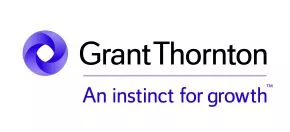No business owner is an island—particularly when you run a family business. In today's interconnected, hypercompetitive economic climate, it's essential to have a strong team of advisors behind you—individuals who can offer you sound professional advice to help you make the best possible decisions, for both your business and your family.
Unfortunately, building and managing such a team can be a challenge—and, in some cases, it can actually cause more headaches than it remedies. In research conducted by the Society of Trust and Estate Practitioners (STEP),1 family business owners revealed that one of their top challenges was simply finding advisors with the ability to offer holistic advice—that is, advice that doesn't neatly fit into product-oriented professions.
Perhaps at the heart of the problem is the fact that your advisory team is essentially made up of competitors. Because of this, team members can be unwilling, or unable, to talk to one another, leading to either a duplication of advice, or costly advisory gaps. Additionally, advisors are typically trained to offer purely technical advice—and may have trouble applying it to a family enterprise context or recognizing the unique role family relationships play in effectively putting that advice into practice.
Adding value in a whole new way
While inefficiencies surrounding the traditional way of offering advisory services are still too common, there are signs that the times may be a-changin'. For instance, almost a decade ago, the Institute of Family Enterprise Advisors (IFEA) created the Family Enterprise Advisors (FEA) designation—a comprehensive standard of education and practices designed to enhance the skillsets of professional advisors, allowing them to offer advice that's better suited to a family's personal and business needs.
Similarly, advisors trained to work with family enterprises can offer both technical and interpersonal advice, and are trained to understand a family's specific goals so as to find the most appropriate solutions. In many ways, they act as a sort of quarterback—aligning advisors and transforming competitors into collaborators. They also work diligently to understand the nature of the family business dynamics, and how different relationships or life events could potentially impact the enterprise as a whole.
Having an advisor hold this type of lead or "quarterback" role can benefit your business in a number of ways, including:
- Defining the needs of your family enterprise. Every family enterprise—like every family—is unique. A lead advisor will work with you to better understand the needs of your family and your business, including your family's primary concerns, future goals and dynamics.
Footnote:
1 STEP-IFB, Engaging Advisors: Family Business Research. Accessed at: http://www.step.org/sites/default/files/SIGs/Business_Families/STEP-IFBFamilyBusinessResearch0413.pdf
The content of this article is intended to provide a general guide to the subject matter. Specialist advice should be sought about your specific circumstances.


